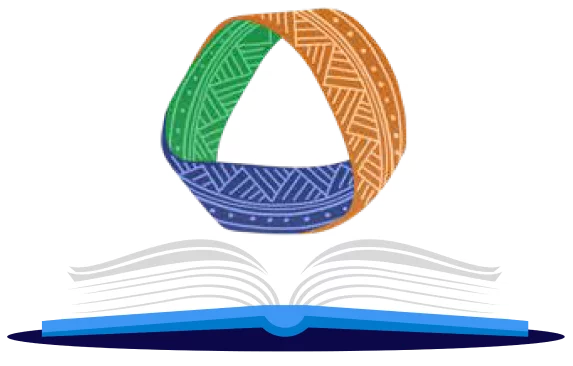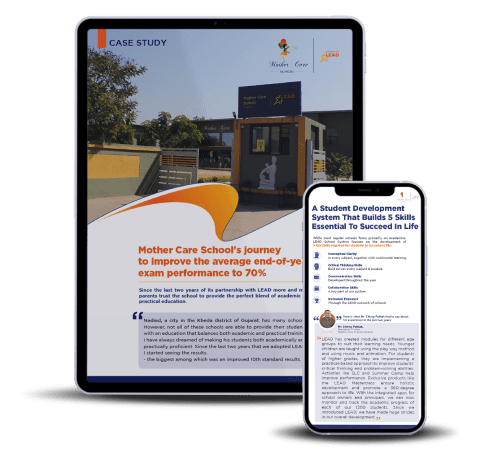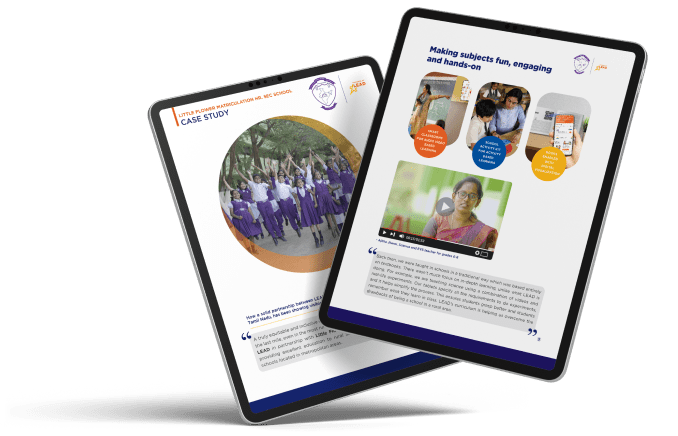The National Curriculum Framework 2023 introduces a fresh perspective on education, focusing on inclusivity,
flexibility, and holistic development. It aims to prepare students with essential skills and values, shaping them
into well-rounded individuals ready for the future.
Holistic Educational Transformation through Curriculum Development
The NCF 2023 is based on the goals of the NEP 2020 and aims to improve the overall education system in India.
It focuses on making learning meaningful by connecting school culture, teaching methods, and the learning
environment to meet the needs of children aged 3 to 18 years.
Age-Specific Education Structure (5+3+3+4 Model)
The NCF 2023 introduces the 5+3+3+4 structure, replacing the traditional 10+2 system. This covers the
foundational (ages 3-8), preparatory (ages 8-11), middle (ages 11-14), and secondary (ages 14-18) stages,
ensuring education aligns with students' developmental needs.
Focus on Foundational Literacy and Numeracy (FLN)
To ensure every child has strong reading, writing, and math skills, the framework emphasizes play-based and
activity-oriented learning during the foundational stage. This approach ensures critical early learning is
engaging and effective.
Teachers as Key Drivers of Change through Teacher Education in School Education
The NCF 2023 highlights the importance of teachers in transforming education and strengthens teacher
education through continuous training, resources, and infrastructure, enabling educators to deliver the vision
of the National Education Policy effectively. The framework also recognizes the role of school leaders and
parents.
Emphasis on Multilingual Education
The NCF 2023 introduces the three-language formula to build multilingual fluency. Students learn their mother
tongue, an additional Indian language, and English. This helps develop reading, writing, and comprehension
skills while appreciating India’s linguistic heritage.
Flexible Subject Choices for Students
In the secondary stage, students can select subjects across disciplines instead of being restricted to
streams like science or arts. This flexibility allows students to align their learning with personal interests
and future career goals.
Practical and Engaging Mathematics Education
For grades 6-8, the NCF 2023 combines subjects like history, geography, political science, and economics into
thematic learning. This interdisciplinary approach connects ideas across subjects, making learning relevant
and comprehensive.
Practical and Engaging Mathematics Education
To address the fear of mathematics, the framework integrates practical and interactive teaching methods
through experiential learning, linking concepts to real-world applications. Mathematics is linked to
real-world scenarios and other subjects, emphasizing its importance and encouraging
deeper understanding.
Modern Assessment Practices under Competency-Based Education
The framework introduces flexible and stress-free assessments, offering board exams twice a year. These exams
focus on learning assessment that evaluates students’ critical thinking, understanding, and application of
concepts through competency-based learning, rather than rote memorization, ensuring quality education.
Group-Based Learning Structure
NCF 2023 categorizes subjects into four groups: Group 1 (languages), Group 2 (art education, physical
education and well-being and vocational education), Group 3 (social science, interdisciplinary areas) and
Group 4 (mathematics and computational thinking and science). This structure promotes balanced learning,
interdisciplinary studies, and specialization, ensuring students gain diverse and practical knowledge.
Inclusive Curriculum Design
The framework ensures that the curriculum is adaptable to different needs, interests, and contexts. It
balances local, national, and global topics, making education inclusive and relatable for all students.
Phased Rollout Across Schools
The implementation of the NCF 2023 is designed to be gradual, with schools introducing all subject groups and
flexible assessments over the next decade. This phased rollout ensures the smooth adoption of the new
curriculum and assessment methods.




